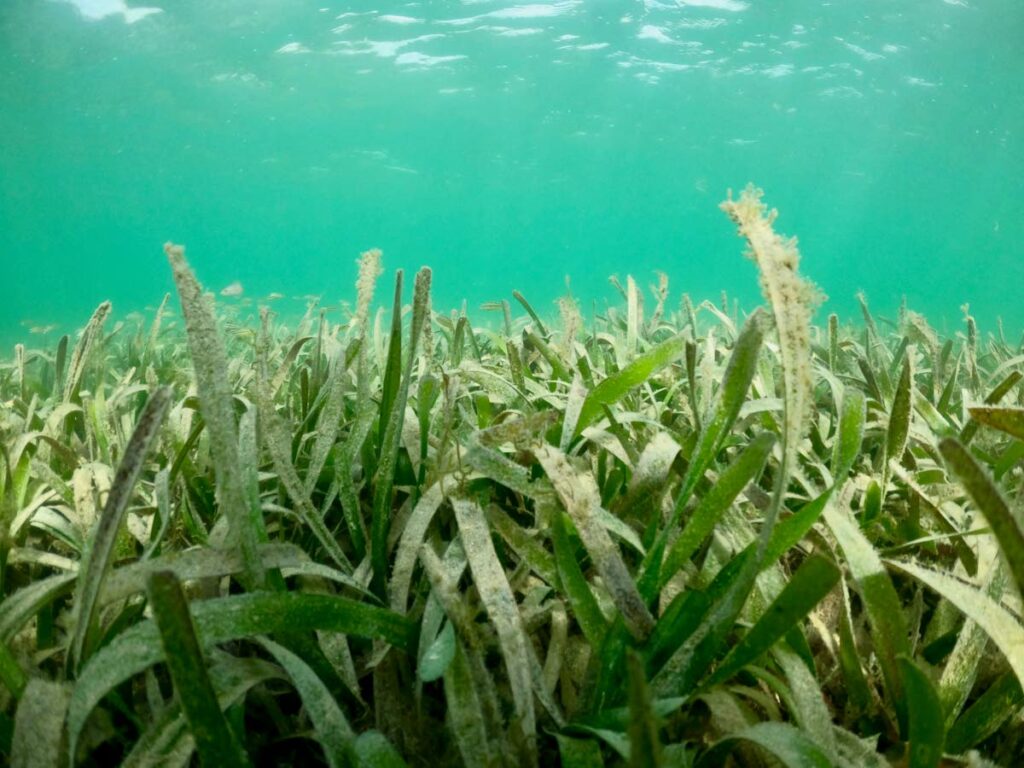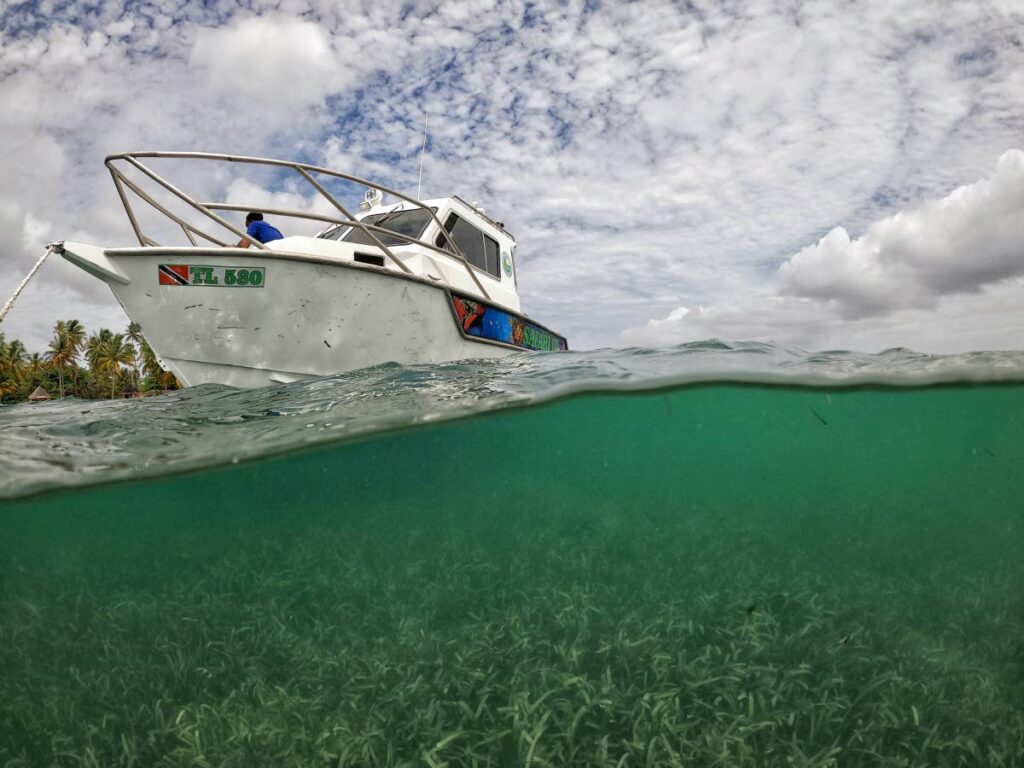Only one Earth

Dr Anjani Ganase,
Coral reef ecologist,
Institute of Marine Affairs
The theme for World Environment Day 2022 asks us to remember that “in the universe are billions of galaxies, in our galaxy are billions of planets, but there is only one Earth,” the habitat upon which the survival of the human species depends. Since 1974, the observance of World Environment Day serves as a platform for issues such as human over-population, marine pollution, global warming, sustainable consumption, and wildlife crime. This year, the issues are more critical than ever as people around the world struggle to bring carbon emissions in line with the prescribed “1.5 degrees Celsius above the pre-industrial average.”
While we may distinguish ourselves with imaginary geographical borders, different languages and through political and cultural ideologies, we live on a planet that has no definitive boundaries other than these defined for political purposes. Nature and her patterns of biodiversity exist along a continuum of changing environmental conditions. In Trinidad and Tobago, our mountain ranges and forest reserves merge with our wetlands and coastal ecosystems that give way to near shore marine habitats – seagrass meadows and coral reefs – that serve as nurseries to the wildlife of the open ocean. Nature is singular and we are a product of that nature.

However, the 10,000-year progress of humankind corresponds with significant biodiversity loss and today, the extinction rate is about ten to a hundred times higher compared to 10 million years ago. Much of the biodiversity loss has occurred because of change in land and sea use, direct exploitation of organisms, climate change, pollution and invasive alien species (IPBES 2019). The scientific community has signalled a code red for humanity: they are alarmed that global average temperature is expected to rise above 1.5 degrees within this decade, reaching a tipping point that will set in motion new climate norms (including climate disasters) for the next millennia.
We are already experiencing severe droughts, wildfires, back-to-back annual coral bleaching events and mass die-offs of wildlife. At the same time, social issues, such as poverty, health, equity, and education, are unabated, precipitating environmental and economic instability that threaten to undermine the progress being made in developing countries around the world. Climate change will disproportionately impact the developing world owing to the fragility of environmental, social and economic state in many of these places.
The solution requires transformative change that tackles the underlying indirect drivers of nature deterioration and includes developing incentives and widespread capacity for environmental responsibility, eliminating perverse incentives, taking pre-emptive and precautionary actions in regulatory and management institutions and businesses.
It is anticipated that these would help to avoid, mitigate and remedy the deterioration of nature, and monitoring their outcomes and strengthening environmental laws and policies and their implementation, and the rule of law more generally (IPBES, 2019). These transformations must occur at all levels – government, private sector, communities and the individuals. Major transformation must take place at the level of individual values and vision for a healthier lifestyle and to heal the planet. We all play an important role.

Governments must lead by example and set the rules across sectors as the appointed regulators. Policies and actions must be aligned toward achieving the UN’s Sustainable Development Goals that integrate priorities such as reducing poverty with human health and environmental protection and efforts to curb climate change. The principles of the circular economy should be utilised to generate industries in repairing, reusing, and recycling raw materials.
We have the tools; we now need the will and the conscience. Let us use our experts to integrate day-to-day operations in the public sectors towards eco-friendly alternatives to reduce waste, while making infrastructure – buildings, transport systems – greener and energy-efficient. Streamlining towards the climate goals means that money can be saved and reallocated to other purposes. Government can incentivise renewables, while taxing carbon polluters. Finally, education on our island ecology in the public education system is essential for fundamental understanding of why and how our natural resources need to be conserved.
Let us consider our natural capital, not just oil and gas, and take stock of natural assets from which individuals, businesses and government benefit. We must move to actively protect and manage precious habitats – forests, wetlands, coastal and marine areas.
Our coral reefs are one example of marine natural capital where the health of the ecosystems is closely tied to the success of the tourism and fisheries industries. To date, TT has one marine protected area designated since 1973 but still lacking effective management. We also have the oldest fisheries legislation in the world dating back to 1916 with an updated version – The Fisheries Management Bill 2020 – not yet enacted. These are natural renewable capitals, that can be conserved and restored to secure livelihoods for generations.
With the infrastructure for sustainability in place, businesses can be incentivised to implement green reform and emission reduction policies. They can tap into the circular economy and incentives generated by the government and develop business models that considers waste as raw materials – such as plastics, clothing, metals and even electronics. Think about downstream supply chains for reusing materials. Encourage eco-friendly consumer habits by seeking waste reduction in goods and services, and the use of long-life and plastic-free alternatives.
As for individuals, use your voices! We have the power to advocate for change not just during election cycles. Be open to discussing behaviour change when it comes to the environment as it has significant consequences to our well-being. The hardest activities will be to divest from fossil fuels and to avoid environmentally unfriendly businesses.
Design your home and life for energy efficiency and a lower carbon footprint. Choose wisely when consuming and be responsible about your waste. Learn to compost your organic food waste and plant cuttings. Seek reusable options for water bottles, shopping bags, and food containers. Shop smart and think about your waste when purchasing. Be mindful about your water and energy consumption.
If we can, in our own country, take away the arbitrary lines that separate one island from the other, town from country, beach from mountain, we will see that we are indeed one territory in one world. We all share the responsibility to cherish this unique rock called Earth; the only place – in all the universe it seems – where life not only exists but flourishes.
Lord Nelson said, “All ah we is one family! When he building, or she planting, everybody helping, no money ent passing. Is tradition on the island.”
References:
A Practical Guide to living sustainably in harmony with nature. Developed for World Environment Day 2022, UNEP
Intergovernmental Science-Policy Platform on Biodiversity and Ecosystem Services (IPBES), 2019. The Global Assessment Report on Biodiversity and Ecosystem Services (Version 1)


Comments
"Only one Earth"